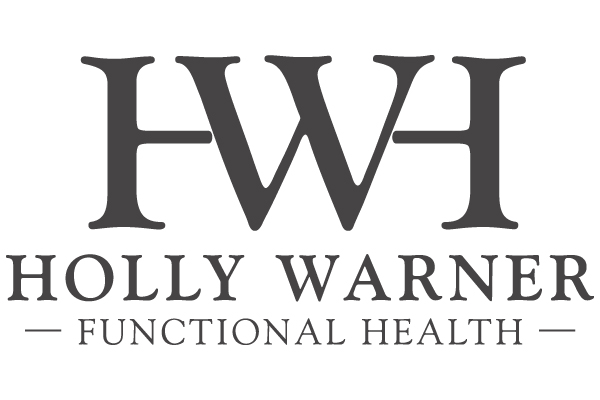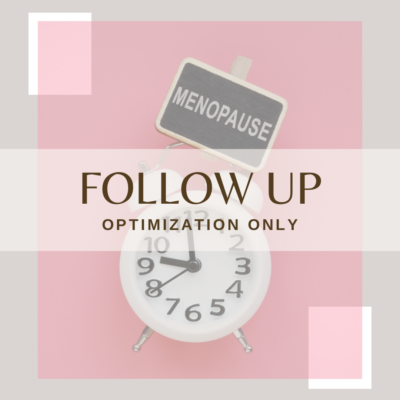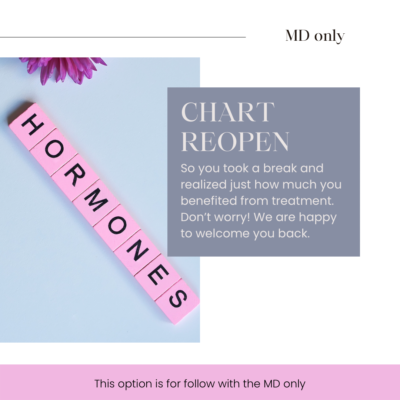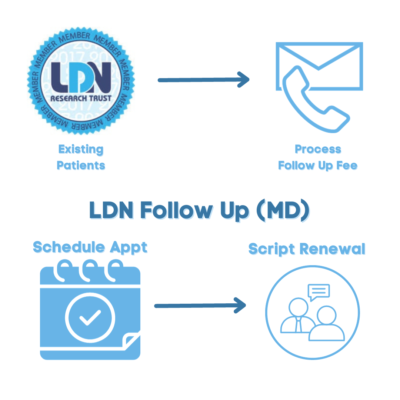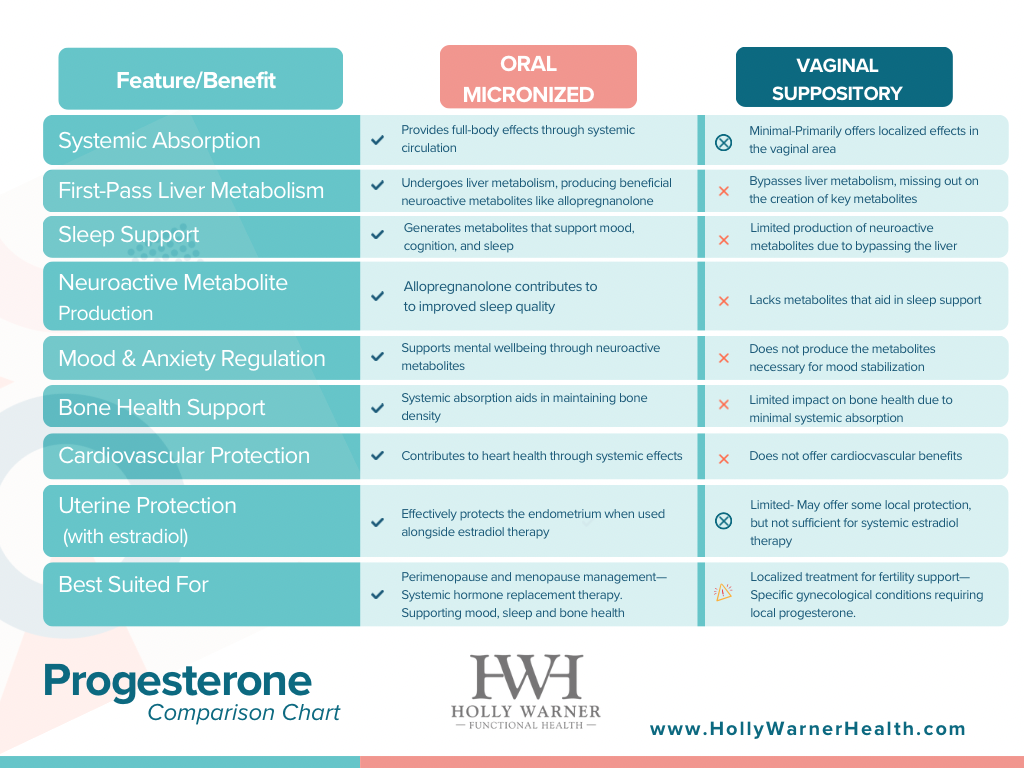
Why Oral Micronized Progesterone Is the Gold Standard
When it comes to hormone therapy—especially for women in perimenopause or postmenopause—oral micronized progesterone stands out as the safest and most effective option for systemic support.
Let’s talk about why.
The First-Pass Effect: It’s Not a Flaw—It’s a Feature
Oral micronized progesterone is metabolized by the liver, a process known as the first-pass effect. This isn’t something we try to avoid—it’s essential. During this process, the liver converts progesterone into neuroactive metabolites like allopregnanolone, which play a crucial role in regulating mood, sleep, and anxiety. These benefits simply aren’t achieved through vaginal suppositories or topical creams, which bypass the liver entirely.
Uterine Protection: Oral Micronized vs. Vaginal Suppositories
If you’re on estrogen therapy and still have a uterus, adequate progesterone is critical to protect the endometrium from hyperplasia and cancer. Oral micronized progesterone provides proven endometrial protection at therapeutic doses-key word THERAPEUTIC. We also know that even without a uterus we need adequate progesterone for endometrial protection.
Vaginal suppositories may offer some localized protection, but they are not reliably systemic, and the dosing is often insufficient unless used at very high doses—something most prescribing protocols don’t reflect. Bottom line? Oral is safer and more dependable when it comes to full uterine protection.
Testing Progesterone: Serum vs. Saliva
Another myth that needs busting: saliva testing is not a reliable way to assess progesterone levels. Progesterone is a fat-soluble hormone and doesn’t distribute evenly into saliva. This makes salivary levels highly inconsistent and often misleading. Serum testing is the gold standard. It allows us to assess both total and free hormone levels with much greater accuracy—crucial when dosing for safety, symptom control, and long-term health outcomes.
Why Are So Many Women Given Suppositories or Creams
Let’s call it what it is: a limitation in prescribing rights. In many provinces, including Ontario, naturopathic doctors are not licensed to prescribe oral micronized progesterone (among other hormones). This often leaves patients with less effective alternatives like vaginal suppositories or topical creams—neither of which deliver the same systemic benefits.
That’s not a judgment of the practitioner, but it’s an important limitation to be aware of. If you’re being prescribed progesterone and it isn’t oral micronized, it’s worth asking why, and whether the person prescribing it has the training—and the legal scope—to offer you the most effective options.
Still not sure if your progesterone is doing the job? Book a no-pressure courtesy call and let’s talk about what’s actually working, what’s not, and how to get you optimized. No fluff. Just facts.”
Book your complimentary call here

